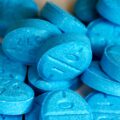Mixing alcohol and prescription meds is a potentially dangerous practice that can seriously affect an individual’s health. Combining these substances can amplify both effects, leading to adverse reactions and increased risks. Understanding the dangers associated with this risky behavior and why it should be avoided to reduce the risk of accidental overdose and death is essential.
Harmful Prescription Meds and Alcohol Combinations
Combining certain prescription medications with alcohol can harm the body and increase the risk of serious health issues.
Painkillers (Opioids):
Alcohol enhances the sedative effects of opioids, leading to increased drowsiness, impaired coordination, and breathing difficulties. This combination can be life-threatening due to the potential for respiratory depression.
Anxiety Medications (Benzodiazepines):
Combining benzodiazepines such as Xanax or Valium with alcohol can cause extreme drowsiness, confusion, memory problems, and slowed breathing. In severe cases, it can lead to loss of consciousness or overdose.
Antidepressants:
Mixing certain antidepressants, such as selective serotonin reuptake inhibitors (SSRIs) or tricyclic antidepressants (TCAs), with alcohol can increase the sedative effects, impair cognitive function, and worsen depressive symptoms. It may also increase the risk of suicidal thoughts or behavior.
Sleeping Pills (Hypnotics):
Combining sleeping pills like Ambien or Lunesta with alcohol can result in excessive sedation, memory problems, impaired coordination, and difficulty breathing. The central nervous system depressant effects of both substances potentiate each other.
Antihistamines:
Many over-the-counter allergy medications contain antihistamines that can cause drowsiness. Mixing antihistamines with alcohol can intensify this sedating effect, leading to extreme drowsiness, impaired coordination, and increased risk of accidents or falls.
Mixing Antidepressants and Alcohol
Mixing antidepressants and alcohol can have several adverse effects on an individual’s physical and mental health, including:
- Increased drowsiness: Both alcohol and antidepressants have sedative properties, and combining them can intensify this effect. This may result in excessive sleepiness, difficulty concentrating, impaired coordination, and slowed reaction times.
- Worsened depressive symptoms: Alcohol is a central nervous system depressant that can exacerbate feelings of sadness or hopelessness commonly associated with depression. It can also interfere with the effectiveness of antidepressant medication.
- Impaired cognitive function: Mixing antidepressants and alcohol can impair memory, attention, problem-solving skills, and judgment. This can make performing everyday tasks, operating machinery, or making important decisions difficult.
- Increased risk of overdose: Alcohol can increase the levels of certain antidepressant medications in the bloodstream, potentially leading to an overdose. This is particularly true for drugs metabolized through similar pathways as alcohol.
- Suicidal thoughts and behavior: Both alcohol and some antidepressants have been linked to an increased risk of suicidal thoughts and behavior. Combining them may further elevate this risk, making it crucial to avoid alcohol when taking antidepressant medication.
Mixing Alcohol and Sleep Aids
Mixing alcohol and sleep aids can be extremely dangerous and should be avoided. Both alcohol and sleep aids have sedative properties, which can significantly depress the central nervous system. Combining these substances can intensify their sedating effects, leading to excessive drowsiness, impaired coordination, confusion, and difficulty waking up.
Additionally, alcohol and sleep aids can both suppress respiratory function independently. Combining them increases this effect, potentially causing shallow or slowed breathing or respiratory failure.
Furthermore, mixing alcohol with sleep aids can lead to memory problems and difficulty forming new memories when both substances are active in the body. This can lead to blackout episodes or amnesia.
Alcohol impairs judgment, coordination, and reaction times, while sleep aids can cause residual drowsiness upon waking up. Combining these substances can significantly increase the risk of accidents, falls, and injuries.
Most importantly, taking large amounts of sleep aids or combining them with alcohol increases the risk of overdose. This is particularly dangerous as it can result in severe respiratory depression that may be life-threatening.
Mixing Alcohol and Benzos
It is hazardous to mix alcohol and prescription meds, including benzos. Both alcohol and benzos are central nervous system depressants. Combining them can lead to excessive sedation, resulting in extreme drowsiness, confusion, impaired coordination, and difficulty performing basic tasks.
Both alcohol and benzos can also suppress the respiratory system, leading to shallow or slowed breathing. This effect is intensified when used together, increasing the risk of respiratory failure and potentially fatal consequences.
Another danger is the combination of alcohol and benzos can significantly impair cognitive functions, such as memory, attention span, and decision-making abilities. This can lead to poor judgment, increased risk-taking behavior, and diminished ability to react appropriately in dangerous situations.
Like other combinations, mixing alcohol with prescription med benzos significantly increases the overdose risk. Both substances intensify each other’s effects on the central nervous system and can easily overwhelm the body’s ability to handle them. An overdose can result in respiratory arrest, coma, or even death.
In addition, combining alcohol and benzos can cause profound memory impairment and blackouts. Individuals may have no recollection of events while under the influence, leading to dangerous situations or difficulties piecing together what happened during that time.
How Medically Supervised Detox Can Help
Abruptly stopping certain medications or withdrawing from alcohol can lead to severe withdrawal symptoms such as seizures, hallucinations, anxiety, insomnia, or even life-threatening conditions like delirium tremens (DT). Medically supervised detox ensures that individuals receive necessary medical interventions, including monitoring vital signs, managing withdrawal symptoms safely, and addressing potential complications.
It also provides a structured and supportive environment where individuals can safely begin their journey toward recovery while minimizing risks and complications commonly associated with withdrawal from harmful prescription medication and alcohol combinations.
Specialized Detox and Treatment Programs in Murfreesboro, TN
At Tulip Hill Recovery in Murfreesboro, TN, we offer specialized detox and treatment programs to help people overcome addiction in a safe, supportive, and caring environment. We believe recovery is possible for everyone. Contact us today to start your recovery journey.



 Call Us
Call Us
 877-845-8192
877-845-8192